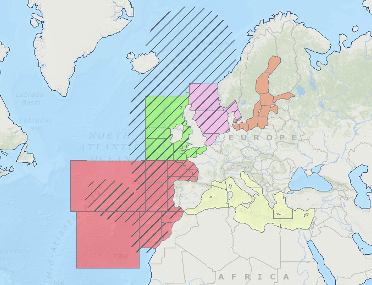Changes to Advisory Councils a step towards ending the micromanagement of EU fisheries

The European Commission has today announced key changes to Advisory Councils to give them a stronger voice and more balanced representation in fisheries policy. The changes underline the new Common Fisheries Policy's (CFP) commitment to bringing decisions closer to the fishing grounds and putting an end to the micro-management of European fisheries from Brussels.
Advisory Councils bring together representatives of industry as well as other interest groups such as environmental NGOs and consumers' organisations. Under the new CFP they have a right of consultation when Member States cooperate at regional level to decide the rules which should apply to fishermen in that region. They give advice to the Commission and to Member States on fisheries management in their area or sea basin.
"A few years ago, decisions on twine thickness, mesh size and other technical characteristics of the fishing net were still taken in Brussels", said Commissioner Damanaki. "Today, we want those who know the local challenges and needs best to have a say on fisheries management. What counts for us is what we achieve, not how we do it. Since each sea basin is different, giving responsibility to regional actors will simplify things, rather than adding unnecessary burdens."
The changes announced today seek to make Advisory Councils more balanced, inclusive, and cost efficient. The changes include a review of membership to ensure a more balanced representation of stakeholders, with more room being made for non-fisheries interests.
Given the importance of having local stakeholders and representatives from small-scale fisheries involved in the shaping of management measures the removal of financial obstacles to participation is also encouraged. Finally, Advisory Councils are encouraged to make use of modern IT tools and translation and interpretation services to ensure they are cost-efficient and accessible for all members to contribute.
Background
The new Common Fisheries Policy, which came into force on 1 January 2014, overhauled the rules on how fisheries should be managed. Regionalisation and more extensive stakeholder consultation became central planks in fisheries management.
The CFP's commitment to decentralising governance is reflected in a number of instruments and measures: multiannual plans, discard plans, establishment of fish stock recovery areas and conservation measures necessary for compliance with obligations under EU environmental legislation.
Where regionalisation applies, EU countries with a direct management interest may agree to submit joint recommendations. The recommendations have to be compatible with the objectives of the CFP and be at least as stringent as measures under EU law. The EU countries have to consult the relevant Advisory Council on the joint recommendations before submitting them to the European Commission. If all these conditions are met, the Commission can then adopt a Commission Act to transform these joint recommendations into EU law applicable to all operators.
For further information click here. Enlarge the picture.


